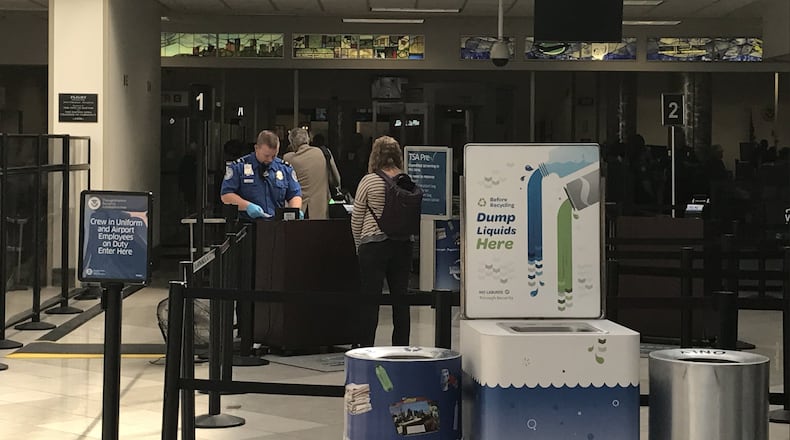However, travelers are weary of fully automated aircraft. More than 50 percent of the 8,000 people surveyed by UBS said they would not feel comfortable flying in a pilotless plane, even if the airfare was cheaper.
» RELATED: 5 tips for booking cheap flights
“Some 54 percent of respondents said they were unlikely to take a pilotless flight, while only 17 percent said they would likely undertake a pilotless flight,” the report found. “Perhaps surprisingly, half of the respondents said that they would not buy the pilotless flight ticket even if it was cheaper.”
Pilot concerns
The Air Line Pilots Association, a pilot union which represents more than 57,000 pilots in North America, told this news organization that pilots will continue to play an important role in the commercial flight industry.
“This report makes clear that passengers are not willing to trade the most important safety component of the commercial aviation system for cheaper fares. A well-trained and experienced flight crew is irreplaceable,” according to the ALPA. “Pilots on board an aircraft can see, feel, smell, or hear many indications of an impending problem and begin to formulate a course of action before even sophisticated sensors and indicators provide positive indications of trouble. This capability is completely lost without a pilot on board.”
» Dayton Airport director’s plan to lure passengers: Bigger planes, more flights
However, the autonomous aircraft could help address some issues caused by a shortage of commercial pilots. North American companies will need to hire 112,000 pilots between now and 2035, according to the Boeing 2016 Pilot Outlook.
The pilot shortage has impacted customer service in the past year. In May, low-cost carrier Spirit Airlines Inc. had a pilot shortage that ended a major debacle at an airport in Ft. Lauderdale, Fla. A total of nine flights were cancelled and riots ensued at the airport after the airline’s pilots went on strike over labor negotiations between the airline company and the pilot union. An earnings report released in late July by the company said Spirit Airlines had 850 “pilot-related” flight cancellations last quarter, costing the company $45 million.
The shortage has, in part, been caused by the growing industry, and that issue may only get worse. Worldwide passenger demand is estimated to double in the 20 years, according to the International Air Transport Association.
Local impact
Local airport officials said they did not have enough information on autonomous aircraft to comment on the impact yet, but said technology innovation is imperative to the future of the airline industry.
“Innovation is critical to the effectiveness, efficiency and long-term sustainability of all industries,” said Candace McGraw, chief executive officer of Cincinnati/Northern Kentucky International Airport. “Aviation is no exception. We have come a long way since the Wright brothers— and I am certain the industry will continue to innovate into the future.”
» RELATED: After Southwest departure, what's next for Dayton airport?
Aircraft manufacturers Boeing Co. and Airbus have both been working on autonomous aircraft technology for years, according to local aviation expert Jay Ratliff, and commercial airplanes are already operating on autopilot for significant portions of some flights.
Ratliff said he doesn’t expect to see pilotless planes in operation for another 15 years or longer, but commercial flights could see planes with one pilot instead of two in the cockpit in the coming years. Some potential problems include resistance to change from older customers and the possibility that hackers could rig and control an airplane through its autonomous controls, he said.
» RELATED: Uber, Lyft operating at Dayton International Airport
Then, there are the situations that only a human could handle. Ratliff argued that a pilotless plane would’ve resulted in catastrophe in a situation like pilot Chesley Sullenberger’s near-perfect water landing of US Airways Flight 1549 on the Hudson River in 2009. The aircraft struck a flock of geese and lost all engine power, forcing Sullenberger to perform an emergency-landing. All 155 passengers aboard were rescued, and there were very few serious injuries.
“If I’m a pilot, I’m bringing up the miracle on the Hudson,” he said. “A computer could have never done that. There will always be those anomaly type of situations.”
Staff writer Dana Zechar contributed to this report.
FIVE BUSINESS FAST READS
• Dunkin' Donuts could be changing its name. Here's why.
• New Dayton area Kroger marketplace opens today
• Whole Foods, Amazon merger: What's next for the two giants?
• Future of local malls? Breweries, Amazon lockers, art galleries
• Centerville Cabela's offering shotgun giveaway for fall season
About the Author
